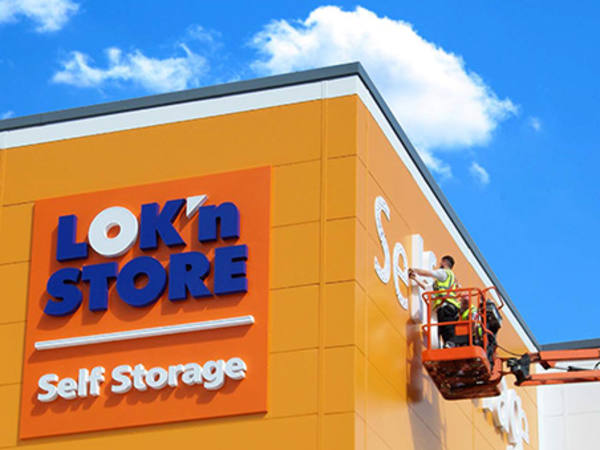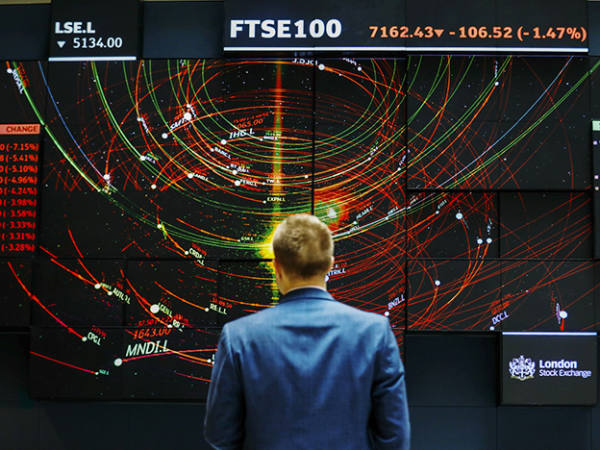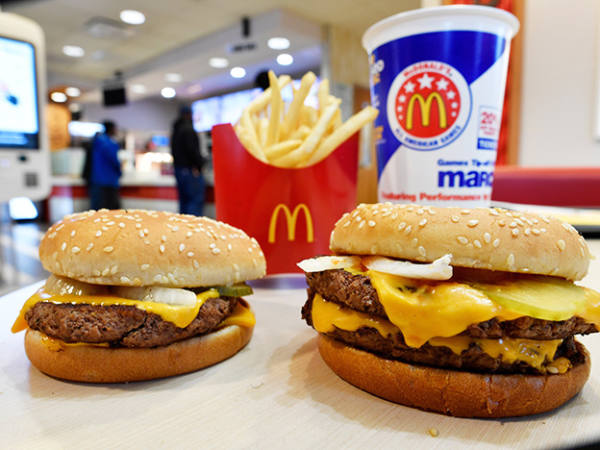- The Biden-Harris administration says it will back a waiver on IP rights linked to Covid-19 vaccines
- The proposal has met with opposition from pharma organisations
The word ‘vaccine’ stems from the Latin name for a cow: ‘vacca’. This is no coincidence. In 1796, the physician Edward Jenner showed that exposure to the relatively mild cowpox virus could confer protection against the much more dangerous smallpox virus.
Jenner’s process was arguably unethical: he used his gardener’s eight-year-old son James Phipps as a trial participant, deliberately infecting him with cowpox to test his immunity. The doctor also failed to garner immediate support from his medical peers, who questioned his work’s relevance and practicality.
Yet his findings would ultimately prove to be a pivotal moment in the fight against deadly diseases. The World Health Organisation (WHO) declared smallpox completely eradicated in 1980.
Vaccines have come a long way since the eighteenth century. True, conventional jabs still contain disease-causing organisms. But these are now weakened or inactivated. Injecting such particles into the skin helps to stimulate the body’s immune response, preparing it for when a real pathogenic adversary comes calling.
Moreover, the vaccine landscape remains alive with the sound of innovation. In recent decades, newer technologies have circumvented the need to add microbes to vaccine recipes.
And while some such technologies have taken a while to catch on (just as Jenner’s did), the coronavirus pandemic has finally unleashed projects into the open which might otherwise have spent years more bubbling away behind closed laboratory doors.
mRNA heyday
Chief among those projects are messenger ribonucleic acid or ‘mRNA’ vaccines. Unlike other jabs, these do not introduce pathogens to the body. Instead, they teach our cells how to make a harmless protein which triggers an immune reaction. That reaction generates antibodies (protective proteins in the blood), readying us for real-life infections.
The perceived upsides of mRNA vaccines are multiple and varied. For one thing, they negate the need to grow large quantities of virus, a process which could be biohazardous. It also takes relatively little time to produce an experimental batch of RNA vaccine.
Such vaccines have been under development for many years, studied for illnesses ranging from flu to rabies. But it was the outbreak of Covid-19 which finally gave mRNA a ‘shot’ – legitimising its methodology on the global stage.
Indeed, two of the world’s first approved coronavirus vaccines are based on mRNA technology. One, developed by US pharma giant Pfizer (US:PFE) and biotech company BioNTech (US:BNTX), was granted emergency use authorisation in the UK in December. The other, made by American company Moderna (US:MRNA), was cleared in January.
Courtesy of those companies, alongside pharma behemoths such as AstraZeneca (AZN) and Johnson & Johnson (US:JnJ), more than 1bn Covid-19 vaccines have already been administered around the world.
And demand is likely to persist as the virus rages on. Pfizer chief executive Albert Bourla said at the time of the group’s quarterly numbers on 4 May that its shot could see demand similar to a regular flu jab, driven by the need for boosters.
However, just a day later, shares in Pfizer dropped three per cent as a major development in Washington D.C. sent shockwaves through the vaccine industry. Shares in Moderna dropped by an even more pronounced six per cent.
Patent fears
The new was thus: the Biden-Harris administration would support a waiver on intellectual property (IP) rights for Covid-19 jabs.
The administration “believes strongly in intellectual property protections”, explained US trade representative Katherine Tai. But “[t]his is a global health crisis”, the “extraordinary circumstances” of which call for “extraordinary measures”.
America’s announcement came months after India and South Africa spearheaded a push within the World Trade Organisation (WTO) to temporarily suspend Covid-19 vaccine protections – aiming to achieve wider and fairer access to essential jabs.
The backlash to the US decision was immediate as political leaders, trade organisations and the pharma companies themselves highlighted the dichotomy between encouraging innovation and removing the web of patents which underpins competition in the healthcare sector.
German chancellor Angela Merkel said a waiver would have “serious implications” for vaccine production. A government spokesperson told Bloomberg that “the protection of intellectual property is a source of innovation and this has to remain so in the future”. Notably, jab-maker BioNTech is a German business.
But in the UK, 450 academics, politicians and others have called on prime minister Boris Johnson to follow Joe Biden – signing their names to a letter claiming that a waiver would help scale up global vaccine production while ensuring safe shots for everyone.
Such a cacophony of voices on the subject of Covid-19 patents means it is nigh on impossible to gauge how much momentum the waiver argument will gather. Rapid vaccination worldwide is in everyone’s interest, but the felling of IP barriers might not constitute a silver bullet on its own.
And at the same time, questions abound about how far a pandemic waiver could set the tone for the future of IP protections across the broader healthcare sphere.
The waiver argument
More than 150m coronavirus cases have been reported globally. More than 3.3m have died from the virus. In recent weeks, India has been devastated by a huge, lethal wave, putting it second only to the States in terms of total infections.
Vaccination is seen as the ultimate answer to stopping Covid-19 in its tracks. Many have thus called for better access for poorer countries with less financial bargaining power. Epidemiologists have also warned that the spread of coronavirus in low-income countries could raise the risk of vaccine-evading mutations.
But the situation is complex. In the view of US pharma trade association PhRMA, Biden’s waiver support “will sow confusion between public and private partners, further weaken already strained supply chains and foster the proliferation of counterfeit vaccines”.
The association added that the move “does nothing to address the real challenges to getting more shots in arms, including last-mile distribution and limited availability of raw materials”.
As fund manager Alex Hunter at Sarasin & Partners sees it, Covid-19 patent waivers are “unlikely to help in the short or medium term as it usually takes years to build high-quality vaccine supply chain capacity”.
Pharmaceutical response
The pharma companies have also had their say. Last week Moderna boss Stéphane Bancel argued that the patent waiver “will not help supply more mRNA vaccines to the world any faster in 2021 and 2022 which is the most critical time of the pandemic”. He said the world lacks “idle mRNA manufacturing capacity”.
Moderna said in October that it would not enforce Covid-19 related patents – although Bancel’s recent comments indicate that this will not make much difference.
Moreover, Hunter notes that a patent waiver is “very different from tech transfer”. Modera might not be enforcing patents “but no-one is copying their Covid vaccine yet as the unpatented knowhow is critical and harder to transfer successfully”.
Meanwhile, Pfizer’s Bourla said in a letter that “fair and equitable distribution was our North Star from day one” and that the group is ramping up supplies to less wealthy countries.
R&D motivation
Bourla also flagged raw material constraints, noting that many of Pfizer’s suppliers “needed our substantial support” to lift production. But in the same breath, he went one step further – raising concerns about the future of innovation.
“I worry that [the] waiving of patent protection will disincentivise anyone else from taking a big risk”, he said. “We deployed $2bn (£1.4bn) before we knew whether we could successfully develop a vaccine because we understood what was at stake”.
Bourla recently authorised spending an extra $600m on Covid-19 R&D, bringing Pfizer’s total 2021 spend to more than $10bn. Last year, Pfizer’s R&D spend constituted 22.4 per cent of revenues (which stood at $41.9bn).
Lossmaking Moderna, which became a commercial company thanks to Covid-19, incurred R&D costs of $1.4bn in 2020 on revenues of $803m.
| Covid-19 vaccine maker | Ticker | 2020 R&D spend | 2020 revenue | R&D as proportion of sales (%) |
| Pfizer | US:PFE | $9.4bn | $41.9bn | 22.4 |
| Moderna | US:MRNA | $1.4bn | $803m | R&D exceeds revenues |
| BioNTech | US:BNTX | €482m | €645m | R&D exceeds revenues |
| AstraZeneca | AZN | $5.9bn | $25.9bn | 23.1 |
| Johnson & Johnson | US:JnJ | $12.2bn | $82.6bn | 14.7 |
| Sources: Company accounts | ||||
“The recent rhetoric will not discourage us from continuing investing in science”, confirmed Bourla. “But I am not sure if the same is true for the thousands of small biotech innovators that are totally dependent on accessing capital from investors who invest only on the premise that their intellectual property will be protected”.
The latest earnings report from BioNTech on 10 May shone a light on the group’s longer-term ambition to expand into a “21st century immunotherapy powerhouse”; something investors are likely to want to come to fruition.
First-quarter numbers included estimated revenues of €2bn (£1.7bn), dramatically higher than €27.7m posted a year earlier. Pre-tax profits landed at €1.6bn, up from losses of €53.4m.
Chief executive Ugur Sahin said there was “absolutely no need” for patent waivers, projecting that the world will have surplus vaccine production within nine to 12 months. BioNTech’s shares jumped a tenth on its results and are up almost 300 per cent over the past year.
Future of patents
Threats to patent protections are nothing new. Among other companies, immunology specialist AbbVie (US:ABBV) has recently endured undercutting from generic drug-makers after it lost exclusivity on its top-selling Humira treatment.
And while the latest development could have huge significance for the industry, “it is still unclear whether the IP waiver will even be instituted given that other members of the WTO will have to approve it”, says Geoff Hsu, portfolio manager at the Biotech Growth Trust (BIOG). “It's also unclear how much this actually expedites vaccine production”.
For Hsu, even if a waiver were enacted, “it will not become the norm for the bio-pharma industry, so I think the long-term impact of this will be minimal”.
Colin McKenzie, senior product specialist at DWS’s ‘intellectual capital’ fund, notes that his systematic vehicle tries to avoid reacting to short-term political issues. The fund, roughly 25 per cent of which is invested in healthcare, has a medium-to-long-term approach.
McKenzie notes that there were huge concerns in the early 2000s about pharma companies and patent expiries, which was followed by a significant derating in the sector. But while valuations declined, “profitability was actually unaffected”.
While McKenzie “can’t say that in three years’ time […] there’ll be no change in return on capital levels for healthcare”, pharmaceuticals and biotechs are “by far and away” the cheapest sector, he says. “We’re looking at low 20s economically”; a metric adjusted for inflation, economic depreciation and other factors.







